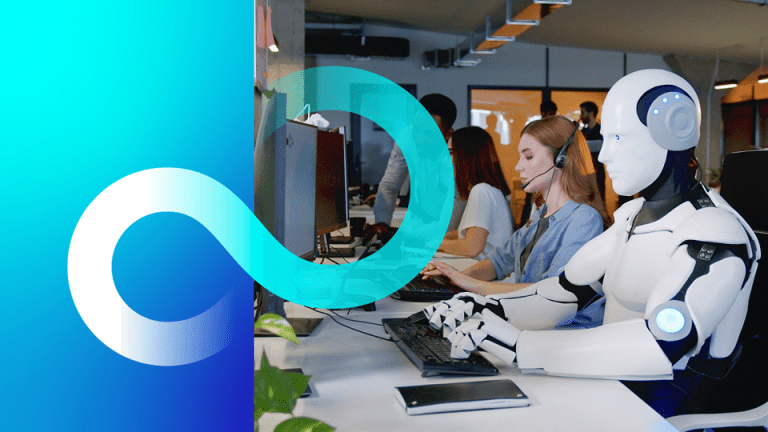
Collaboration between AI security agents with skills and knowledge in attacks and protection
Fujitsu Limited
Current facts:
- New AI multi-agent security technology leverages the collaboration of AI agents to protect against cyberattacks before they occur and respond to the increasing sophistication and frequency of modern threats.
- Multiple AI agents specializing in attack detection, defense, and business continuity testing, enabling organizations to proactively respond to vulnerabilities and new threats.
- A proactive approach to security significantly reduces response times to vulnerabilities, mitigating the risks associated with the rapid evolution of cyberattack techniques and the proliferation of generative AI.
Kawasaki, Japan, December 12, 2024
Fujitsu today announced that it has developed AI multi-agent security technology as the core technology of its AI service. Fujitsu Kozuchi. The system coordinates multiple AI agents with different specialties to simulate cyberattacks, protection strategies and business continuity measures, helping businesses and public organizations develop and implement proactive security measures against cyberattacks. new threats and vulnerabilities.
The system includes three main technologies: security AI agent, multi-AI agent collaboration, and generative AI security enhancement.
Fujitsu will begin field testing of generative AI safety enhancement technology in partnership with Cohere Inc., starting in December 2024 and plans to release part of the AI multi-agent collaboration technology as of open source software (OSS) on OpenHands, an AI agent. platform developed with the strong support of Carnegie Mellon University, a global leader in AI research, in January 2025. Starting in March 2025, the full suite of technologies will be deployed globally and offered on a trial basis .
Fujitsu’s AI multi-agent security technology enables IT system administrators and operations personnel, even those without specialized security expertise, to create applications that enable proactive security measures. It ensures the safe and secure implementation of generative AI within enterprise IT systems, enabling organizations to fully realize the benefits of this technology while mitigating the associated risks.
Fujitsu is committed to contributing to the development of a trustworthy digital society where prosperity and stability coexist, as highlighted by its approach to materiality. The new multi-AI agent security technology developed by Fujitsu represents an important step towards realizing this commitment.
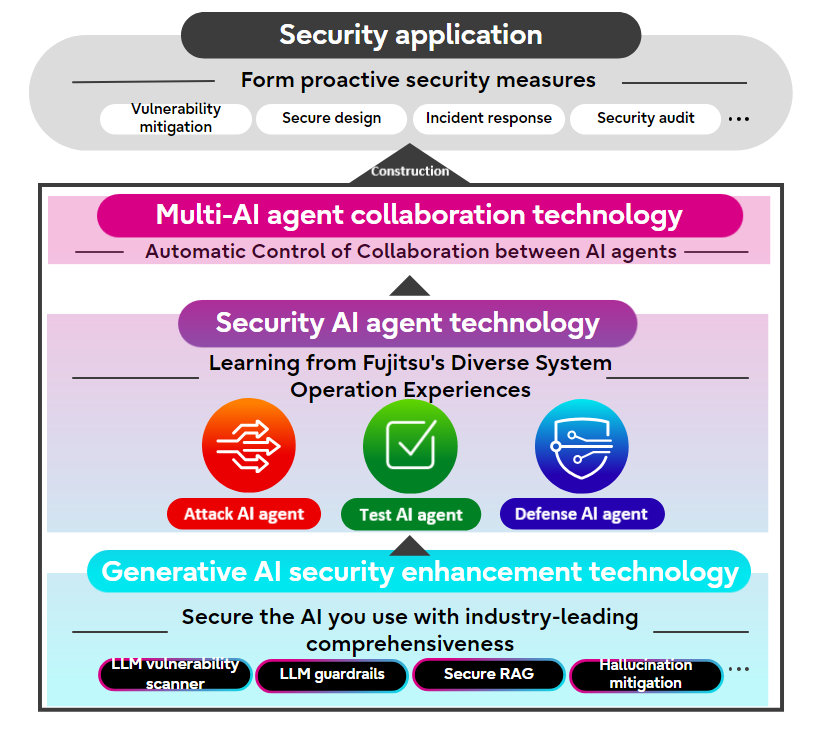 Figure 1: Overview of multi-AI agent security technology
Figure 1: Overview of multi-AI agent security technologyTechnology Overview
1. Security AI Agent
New technology that includes three fundamental AI agents for proactive security measures.
These agents integrate technology co-developed with Ben-Gurion University of the Negev, a world leader in cybersecurity research.
- AI Attack Agent: Uses the analog Tactics, Techniques, and Procedures (TTP) engine to provide effective attack scenarios against target systems for new threats.
- Defense AI Agent: Proposes countermeasures based on the company’s risk profile.
- Test AI Agent: Automatically creates a virtual verification environment (cyber-twin) from the production system to analyze the impact of countermeasures.
The test AI agent runs reciprocal attack and protection simulations with the attack AI agent and defense AI agent on a cyber twin, enabling proactive defenses against new vulnerabilities. Our AI agents are characterized by co-creative learning, tackling complex and unknown problems through collaborative and adversarial learning between AI agents with diverse skills.
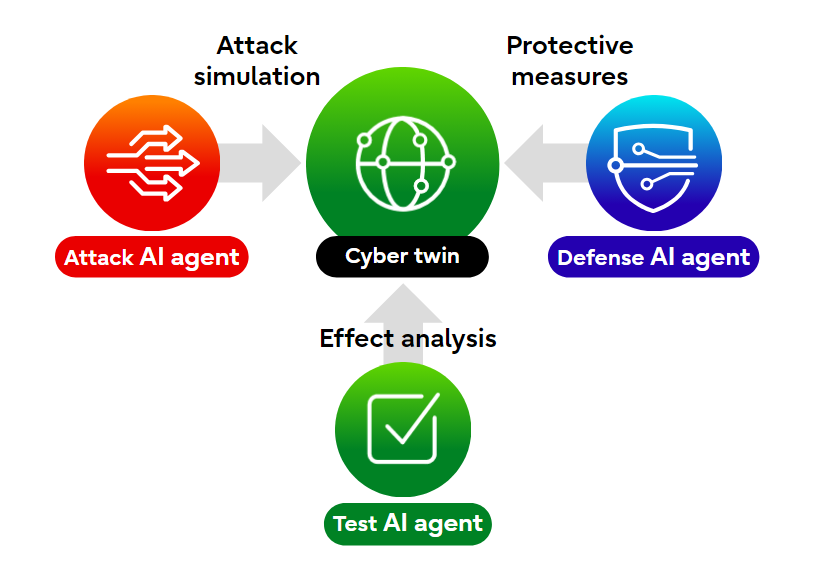 Figure 2: Example of collaboration between the three security AI agents
Figure 2: Example of collaboration between the three security AI agents2. AI multi-agent collaboration
This technology enables seamless collaboration between AI agents and is versatile and applicable beyond security. When AI agents collaborate, ensuring data confidentiality, privacy protection, and compliance with each organization’s policies is a significant challenge. To address this issue, Fujitsu implemented a secure agent gateway coordination feature within each organization’s AI agent infrastructure. This enables autonomous control of collaboration policies, enabling seamless collaboration between AI agents without the need for explicit consideration from AI agent developers.
3. Improving Generative AI Security
To prepare for emerging threats to generative AI, Fujitsu, in collaboration with Ben-Gurion University, has developed an LLM vulnerability scanner capable of automatically and comprehensively checking security resistance, as well as safeguards LLM bodies that automatically protect and mitigate attacks. The LLM Vulnerability Scanner fixes over 3,500 of the latest known vulnerabilities in generative AI, including a proprietary generative code vulnerability checker. Adaptive prompt technology selects the optimal attack prompt based on the LLM’s response, enabling highly accurate attack assessments. Additionally, vulnerability explanation technology leveraging generative AI makes vulnerability assessment easier, even for non-security experts. LLM Guardrails work in conjunction with the LLM Vulnerability Scanner to ensure the safe and secure operation of generative AI by automatically applying protection rules that detect and reject malicious prompts deemed to require action during IT system operations , thus preventing inappropriate responses. The LLM Vulnerability Scanner and LLM Guardrails work with Attack AI Agents and Defense AI Agents to enable proactive security measures for systems.
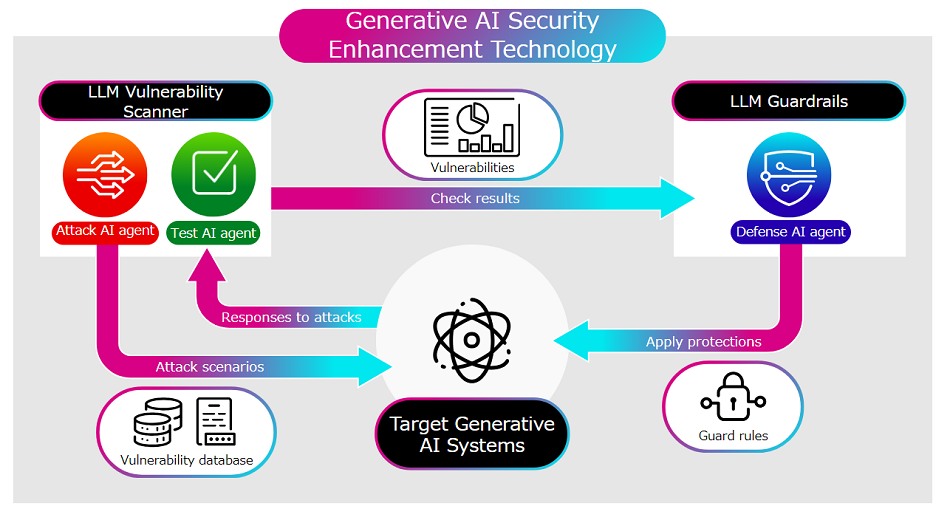 Figure 3: Generative AI security enhancement technology
Figure 3: Generative AI security enhancement technologyAssociate Professor Graham Neubig of Carnegie Mellon University comments:
“The development of AI agents is progressing rapidly around the world. OpenHands, an open source project strongly supported by Carnegie Mellon University, facilitates the development of various AI agent services, features and technologies by integrating external expertise. Combining Fujitsu’s AI multi-agent collaboration technology with OpenHands could significantly accelerate the development of cross-organizational AI multi-agent applications, which would be a remarkable achievement.
Professor Yuval Elovici of Ben-Gurion University of the Negev comments:
“Fujitsu’s innovative “Cyber Twin” technology allows businesses to validate compliance with security policies while simulating new attack and defense scenarios in a risk-free virtual environment. By enabling rigorous business continuity testing without impacting real-world systems, this technology provides organizations with a powerful tool to quickly respond to new emerging vulnerabilities and implement proactive and adaptive security strategies.
Seraphina Goldfarb-Tarrant, Head of Security at Cohere Inc., comments:
“Secure systems are essential for businesses to adopt and benefit from AI development. We are excited that our ongoing work with Fujitsu will enable Japanese companies to leverage AI with our best-in-class multilingual models and security-enhancing technology.
Future projects
Fujitsu aims to further expand its AI agent capabilities to automate a wider range of security tasks. This includes developing agents for secure design, incident response, and security audits. Fujitsu will also continue to strengthen its technology for improving the security of generative AI, expanding its coverage to address vulnerabilities and mitigate hallucinations specific to augmented recovery applications (ARG), ensuring further security and reliability larger for generative AI deployments.
Related links
Fujitsu’s commitment to the Sustainable Development Goals (SDGs)
The Sustainable Development Goals (SDGs) adopted by the United Nations in 2015 represent a set of common goals to be achieved worldwide by 2030.
Fujitsu’s purpose – “to make the world more sustainable by building trust in society through innovation” – is a promise to contribute to the vision of a better future strengthened by the SDGs.

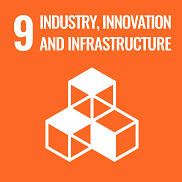
About Fujitsu
Fujitsu’s goal is to make the world more sustainable by building trust in society through innovation. As the digital transformation partner of choice for our customers in more than 100 countries, our 124,000 employees work to solve some of the greatest challenges facing humanity. Our range of services and solutions is based on five key technologies: IT, networks, AI, data and security and convergent technologies, which we bring together to achieve sustainable transformation. Fujitsu Limited (TSE: 6702) reported consolidated revenue of 3.7 trillion yen ($26 billion) for the fiscal year ended March 31, 2024 and remains Japan’s top digital services company by share market. Learn more: www.fujitsu.com.
Press Contacts
Fujitsu Limited
Public and Investor Relations Division
Inquiries
All company or product names mentioned herein are trademarks or registered trademarks of their respective owners. The information provided in this press release is accurate at the time of publication and is subject to change without notice.
Date: December 12, 2024
City: Kawasaki, Japan
Business: Fujitsu Limited


